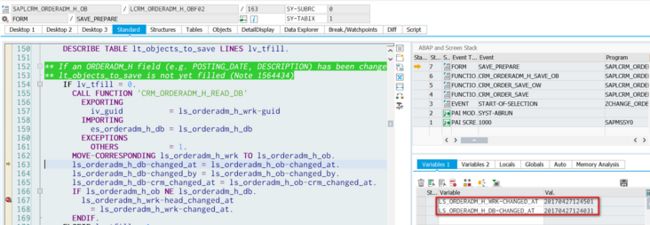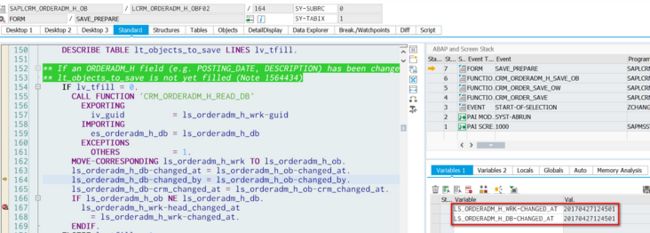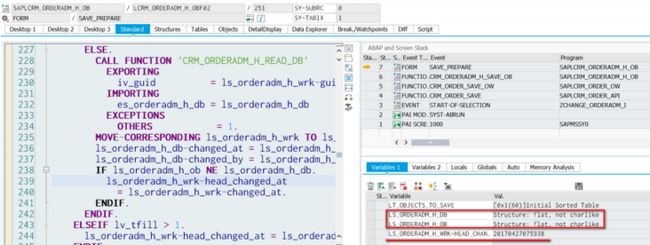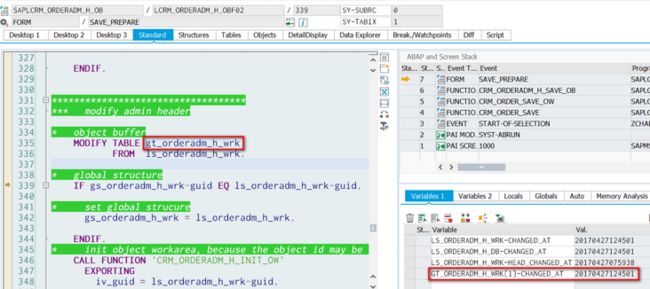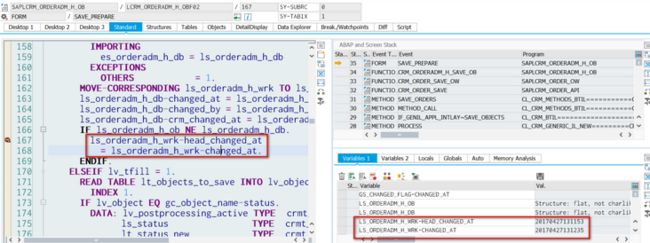- SGP.31/.32 规范以及它将如何影响物联网
SofterICer
eSIM物联网
去年,GSMA发布了适用于物联网设备的新eSIM远程配置标准的架构和要求、SGP.31eSIM物联网架构和网络受限和/或用户界面(UI)受限物联网设备中eUICC远程配置的要求。自SGP.31获得批准以来,业界一直在等待GSMA发布SGP.31的技术实施规范SGP.32。5月26日,GSMASGP.32eSIM物联网技术规范发布,为设备制造商开始受益于新标准并扩展其物联网项目铺平了道路。据物联网专
- 初识Spring MVC并使用Maven搭建SpringMVC
NPU_Li Meng
SpringSpringMVCMavenWeb
SpringMVC基于MVC模式(模型(Model)-视图(View)-控制器(Controller))实现,能够帮助你构建像Spring框架那样灵活和松耦合的Web应用程序。核心类与接口DispatcherServlet前置控制器HandlerMapping处理器映射Controller控制器ViewResolver视图解析器View视图处理SpringMVC的请求流向当用户在浏览器中点击链接或
- 操作系统笔记-番外-操作系统经典书籍推荐
VioletCherry
OS学习操作系统
最近整理以前的笔记,有人问关于操作系统的书籍。我有个爱好喜欢收集书籍,前后也收集了几百本高质量的书籍,这里给大家推荐基本关于操作系统的书籍OperatingSystemConcepts10thedition又称恐龙书,这本书已经出到第10版,可见其经典。作者是想从理论层面把问题的产生和解决思路阐述清楚,包含了操作系统各个方面,是一本非常不错的入门书籍。豆瓣书评下载地址:https://github
- WebMvcConfigurer 和 HandlerInterceptor 拦截器配置校验服务
筏镜
加密校验
在工作中除了通过过滤器配置校验,拦截器配置校验规则也是很常见方式,这里通过WebMvcConfigurer和HandlerInterceptor拦截器配置校验。1、配置拦截器(这个里面添加了跨域支持,当集成swagger防止后台报错),如果没有必要删除其配置,这里做一下展示。@ConfigurationpublicclassAdminCommonConfigimplementsWebMvcConf
- YOLOv8 改进:添加 AKConv(任意采样形状和任意数目参数的卷积)
鱼弦
人工智能时代YOLO
YOLOv8改进:添加AKConv(任意采样形状和任意数目参数的卷积)引言在目标检测领域中,YOLO(YouOnlyLookOnce)系列因其速度和效率而受到广泛关注。为了进一步优化模型性能,可以引入创新的卷积操作,例如AKConv,即“任意采样形状和任意数目参数的卷积”。这种卷积能够灵活地调整采样策略,以更好地适应输入特征。技术背景传统卷积运算在采样位置和参数数量上具有固定性,这限制了其对复杂几
- 【操作系统】Operating System Conceptions第二章知识整理总结
guozhirourou
OperatingSystemConceptions阅读OperatingSystemConceptions
小结:这几天我看了《OperatingSystemConceptions》的第二章。第二章先从用户、开发者以及计算机系统的角度开始,展示操作系统所提供的服务,继而讲解了操作系统是如何通过系统调用来为系统提供服务的,阐述一段程序是如何在系统中装入链接以及执行的。同时通过比较和对比整体、分层、微核、模块化和混合策略操作系统的不同设计,向我们展示了macOS、Android、Windows三种不同的操作
- Spring MVC +Spring 框架学习总结-入门必学知识点
柚子味*
Javaspringspringmvcjavaspringmvc
Spring框架是由于软件开发的复杂性而创建的。Spring使用的是基本的JavaBean来完成以前只可能由EJB完成的事情。然而,Spring的用途不仅仅限于服务器端的开发。从简单性、可测试性和松耦合性角度而言,绝大部分Java应用都可以从Spring中受益。spring相关视频教程:https://www.bilibili.com/video/BV1nz4y1d7uySpringMVC是Spr
- 【操作系统概念】【恐龙书】笔记六——第六章 进程同步
我岂是非人哉
计算机操作系统
Chapter6:ProcessSynchronization问题的提出:彼此合作的进程之间可以用共享逻辑地址空间的方式来实现,共享逻辑地址空间,也就是共享代码区和数据区,会导致数据不一致,所以介绍一些避免数据不一致的机制。6.1BackgroundConcurrentaccesstoshareddatamayresultindatainconsistencyMaintainingdatacons
- 洛谷 P11293 [NOISG 2022 Qualification] L-Board
Yingye Zhu(HPXXZYY)
思维题前缀和算法
[Analysis]\texttt{\color{blue}{[Analysis]}}[Analysis]很显然,对于单个点来说,它的第一项对答案的贡献就是往左最大连续子段和和往右最大连续子段和的较大值,第二项对答案的贡献就是往上的最大连续子段和和往下的最大连续子段和的较大值,第三项是本身。于是把问题转化为求最大连续子段和。当然这个问题可以用一个经典的dp解决。但是对于一个退役的大学生来说,问题应
- 【开题报告+论文+源码】基于SpringBoot+vue的鲜花购物商城
编程毕设
springboot后端java
项目背景与意义近年来,随着人们生活水平的提高,鲜花消费需求逐年增长。然而,传统的鲜花销售模式存在着诸如店面租金高、人力成本高、货源不稳定等问题,这使得商家在面对激烈的市场竞争时,难以获得持续稳定的发展。传统的鲜花商店也可能距离远,这使得消费者需要花时间在各个鲜花店里来回选择,而网上的消费群体可以通过网站,挑选并订购自己需要的鲜花[2]。因此,网络鲜花购物系统可以很好地解决顾客在购买鲜花时的地域限制
- 洛谷 P11626 题解
Yingye Zhu(HPXXZYY)
二分dp数学(数论)算法c++
[ProblemDiscription]\color{blue}{\texttt{[ProblemDiscription]}}[ProblemDiscription]给定长度为nnn的数组A1⋯nA_{1\cdotsn}A1⋯n,求∑a=1n∑b=a+1n∑c=b+1n∑d=c+1n∑e=d+1n∑f=e+1n∑g=f+1n(gcdi=1aAi+gcdi=a+1bAi+gcdi=b+1cAi
- Python第六章08:元组操作练习题
苹果.Python.八宝粥
python开发语言
#元组定义操作练习题"""定义一个元组,内容是:('周杰伦',11,['football','music']),记录一个学生的信息(姓名、年龄、爱好)请通元组(tuple)的功能,对其进行如下操作:1.查询其年龄所在的下标位置2.查询学生的姓名3.删除学生爱好中的football4.增加爱好:coding"""my_tuple=('周杰伦',11,['football','music'])#1.查
- BUAA-SCSE Training day2 指导……
Sd_无心插柳
题目的确选择的比昨天难多了....http://acm.hust.edu.cn/vjudge/contest/view.action?cid=25719#overviewAinti,x,y;cin>>T;while(T--){cin>>n;x=-1>y;ans=max(x-y,ans);x=max(y,x);}cout>n&&n){memset(s,0,sizeof(s));f=0;while(n
- B站黑马程序员第二章10——字符串格式化,占位符
苹果.Python.八宝粥
python开发语言
#字符串格式化#占位符%S%表示:我要占位s表示:将变成字符串放入占位的地方#多个变量占位拼接,变量要用括号,用逗号隔开#将变量内容均转换为字符串进行拼接name="朱丽叶"height=166weight=57.5print("我最爱的狗狗是:%s,她个子高%s,身材好%s。"%(name,height,weight))#多类型数据占位#%s将内容转换为字符串,放入占位#%d将内容转换为整数,放
- Python第六章07:元组的定义和操作
苹果.Python.八宝粥
python前端开发语言
#tuple元组的定义和操作#tuple元组定义用小括号:(1,2,3,4,5),可以是不同类型元素#给变量定义元组时,写括号不写tuple:a=(1,2,3,4,5)#变量=()变量=tuple()空元组变量#tuple元组定义完成后,不可以修改,但是,如果元组中嵌套了一个列表时,元组中列表的内容可以修改#封装数据后,不希望被篡改数据,就使用元组tuple#1.定义一个元组t1=("halibo
- Leetcode-100 贪心算法
LuckyAnJo
leetcodeleetcode贪心算法算法
贪心算法简介贪心算法(GreedyAlgorithm)是一种常见的优化算法,用于解决最优化问题。该算法的核心思想是每次选择当前情况下的最优解,并期望通过这些局部最优解得到全局最优解。贪心算法通常用于那些可以分解为若干个子问题,且每个子问题的最优解可以合成全局最优解的问题。贪心算法之所以有用,是因为它可以快速地做出决策,并能在某些问题上实现较高的效率,避免了回溯与暴力解法的复杂度。贪心算法思想贪心算
- 利用Python爬虫获取Shopee(虾皮)商品详情:实战指南
小爬虫程序猿
python爬虫开发语言
在跨境电商领域,Shopee(虾皮)作为东南亚及台湾地区领先的电商平台,拥有海量的商品信息。无论是进行市场调研、数据分析,还是寻找热门商品,获取Shopee商品详情都是一项极具价值的任务。然而,手动浏览和整理这些信息显然是低效且容易出错的。幸运的是,通过编写Python爬虫程序,我们可以高效地完成这一任务。本文将详细介绍如何利用Python爬虫获取Shopee商品详情,并提供完整的代码示例。一、为
- Trae 解决无法登录问题
兔子不爱吃bug
人工智能pythonjava
什么是Trae?Trae是字节跳动于2025年1月19日推出的AI编程工具,集成了众多顶级AI。Trae海外版官方网站:https://www.trae.ai解决上网环境问题如果你是在国内登录Trae时可能会出现以下状况:解决方法下载插件工具ILink安装完成后开启插件,再次登录。登录成功最后就是下载,安装,登录了,我就不一个个演示了。
- CSS3学习教程,从入门到精通,CSS3 图像属性知识点及案例代码(16)
知识分享小能手
前端开发网页开发编程语言如门css3学习前端csshtml5javascriptcss前端开发
CSS3图像属性知识点及案例代码一、图像属性概述CSS3提供了丰富的图像属性,可以控制图像的显示方式、大小、位置、滤镜效果等。以下是一些常用的图像属性:二、常用图像属性1.background-image作用:设置元素的背景图像。语法:background-image:url("image.jpg");案例:.box{width:300px;height:200px;background-imag
- Transformer 架构对比:Dense、MoE 与 Hybrid-MoE 的优劣分析
m0_74825656
面试学习路线阿里巴巴transformer架构深度学习
1.LLM基础架构类型DenseTransformerMoE(MixtureofExperts)TransformerHybrid-MoETransformer2.Transformer按照编码方式分类单向自回归模型(如早期GPT系列)双向模型(如BERT)编码器-解码器模型(如BART,T5)DenseTransformerDenseTransformer的优势是什么DenseTransform
- ES日志分析
喝醉酒的小白
elasticsearch大数据搜索引擎
日志分析总结:核心错误类型日志中高频出现Client.Timeoutexceeded错误,表明向elasticsearch-logging:9200发起的请求(如获取索引状态/_all/_stats、节点状态/nodes/stats)因超时失败,属于网络请求超时问题。可能原因分析Elasticsearch服务异常:检查elasticsearch-logging服务是否正常运行,是否存在崩溃、重启或
- babel 埋点插件
小猫儿
工具环境配置等javascript开发语言ecmascript
我们通常对babel的理解就是它可以帮助我们去处理兼容性,也就是有些JavaScript的新特性,可能我们想去使用,但对于某些浏览器来说还并未支持,此时我们就可以通过babel将我们的代码降级处理为浏览器兼容的执行版本,以便能够运行在当前和旧版本的浏览器或其他环境中。Babel插件就是作用于抽象语法树。Babel三个主要的处理步骤就是解析(parse),转换(transform),生成(gener
- Mac 杀掉端口对应的进程
潇凝子潇
macossh
kill_port.sh#!/bin/bash#检查lsof是否安装if!command-vlsof&>/dev/nullthenecho"lsof未安装,请使用以下命令安装:"echo"对于Homebrew用户:brewinstalllsof"echo"对于MacPorts用户:sudoportinstalllsof"exit1fi#检查是否提供了端口号作为参数if[-z"$1"];thenec
- Ubuntu & Debian 系统下挂载 Samba 共享目录的完整指南
YiYueHuan
ubuntudebianlinuxSambaNAS
文章目录Ubuntu&Debian系统下挂载Samba共享目录的完整指南前提条件挂载Samba共享临时挂载避免明文密码永久挂载常见选项卸载故障排查Ubuntu&Debian系统下挂载Samba共享目录的完整指南想把NAS中的内容通过Samba挂载到OrangePi5B,但是OrangePi5B提供的内核默认是没有开启CONFIG_CIFS的,所以就整理了一下。在Ubuntu/Debian系统上挂载
- Mac 清理 maven仓库无效引用
潇凝子潇
macosmaven
clean_maven_repo.sh#!/bin/bash#设置Maven仓库路径MAVEN_REPO="$HOME/.m2/repository"echo"$MAVEN_REPO"#进入Maven仓库目录cd"$MAVEN_REPO"||exit#查找并删除无效的引用find.-name"*.lastUpdated"-execrm{}\;#查找并删除空目录find.-typed-empty-d
- QT学习笔记(常用控件)
四代目 水门
QT学习笔记qt学习笔记
QT学习笔记一、QTGUI类继承体系QObject(基类)└──QWidget(所有可视化控件基类)├──QAbstractButton(按钮类基类)│├──QPushButton│├──QRadioButton│└──QCheckBox├──QFrame(带边框控件基类)│└──QLabel├──QLayout(布局管理器基类)└──其他控件类...核心类说明:QObject:所有QT对象的基类
- 单片机 - 串行通信 & 并行通信、接口类型及常见通信协议详细解析
Peter_Deng.
单片机嵌入式硬件
串行通信、并行通信、接口类型及常见通信协议详细解析1.并行通信vs.串行通信通信方式主要分为并行通信(ParallelCommunication)和串行通信(SerialCommunication),两者的主要区别在于数据传输的方式。1.1并行通信(ParallelCommunication)概念:并行通信使用多条数据线同时传输多个数据位(bit),通常需要单独的时钟信号进行同步。优点:速度快,适
- 业务7——数据埋点
嚯嚯嚯嚯什么都不会
业务数据分析
文章目录一、数据生命周期:二、埋点是什么?1、含义2、方式三、埋点流程1、埋点生命周期2、业务需求分析3、埋点文档设计一、数据生命周期:还能从数据角度来看,数据在工作中的参与环节,帮助理清数据分析流程和思路。二、埋点是什么?1、含义数据埋点是数据采集的一种重要方式,是在有需要的位置采集相应的信息,主要是终端用户的操作行为,后续用于解决业务方提出的业务需求。2、方式全埋点代码埋点(百度统计、友盟、T
- 在*.pro 文件中 添加 QT += xxx 的作用是什么?
weixin_44799641
QT学习专栏qt开发语言
下面以打印为例在Qt项目的.pro文件里添加QT+=printsupport这一语句,其作用是把printsupport模块添加到项目里。下面为你详细阐述该模块的用途以及添加这一语句的意义。printsupport模块的用途printsupport模块为Qt应用程序提供了打印和打印预览的功能支持。借助该模块,你可以在应用程序中实现以下功能:打印文档:能够把应用程序里的内容,像文本、图像、表格等,打
- Mac触控板设置以及使用
Yo3ngLau
Mac实用技巧操作集
本文转载自:https://blog.csdn.net/guang_s/article/details/84307604如有侵权,联系即删,转载仅用于学习用途触控板Mac触控板体验是非常好的,很多同学甚至直接用触控板代替鼠标操作,但是默认设置中有一些功能是没有开启的,需要手动配置。本文就来说说如何更改Mac触控板默认设置,让触控板变得更高效。一、启用三指拖移1、打开系统偏好设置,点击辅助功能。2、
- 多线程编程之理财
周凡杨
java多线程生产者消费者理财
现实生活中,我们一边工作,一边消费,正常情况下会把多余的钱存起来,比如存到余额宝,还可以多挣点钱,现在就有这个情况:我每月可以发工资20000万元 (暂定每月的1号),每月消费5000(租房+生活费)元(暂定每月的1号),其中租金是大头占90%,交房租的方式可以选择(一月一交,两月一交、三月一交),理财:1万元存余额宝一天可以赚1元钱,
- [Zookeeper学习笔记之三]Zookeeper会话超时机制
bit1129
zookeeper
首先,会话超时是由Zookeeper服务端通知客户端会话已经超时,客户端不能自行决定会话已经超时,不过客户端可以通过调用Zookeeper.close()主动的发起会话结束请求,如下的代码输出内容
Created /zoo-739160015
CONNECTEDCONNECTED
.............CONNECTEDCONNECTED
CONNECTEDCLOSEDCLOSED
- SecureCRT快捷键
daizj
secureCRT快捷键
ctrl + a : 移动光标到行首ctrl + e :移动光标到行尾crtl + b: 光标前移1个字符crtl + f: 光标后移1个字符crtl + h : 删除光标之前的一个字符ctrl + d :删除光标之后的一个字符crtl + k :删除光标到行尾所有字符crtl + u : 删除光标至行首所有字符crtl + w: 删除光标至行首
- Java 子类与父类这间的转换
周凡杨
java 父类与子类的转换
最近同事调的一个服务报错,查看后是日期之间转换出的问题。代码里是把 java.sql.Date 类型的对象 强制转换为 java.sql.Timestamp 类型的对象。报java.lang.ClassCastException。
代码:
- 可视化swing界面编辑
朱辉辉33
eclipseswing
今天发现了一个WindowBuilder插件,功能好强大,啊哈哈,从此告别手动编辑swing界面代码,直接像VB那样编辑界面,代码会自动生成。
首先在Eclipse中点击help,选择Install New Software,然后在Work with中输入WindowBui
- web报表工具FineReport常用函数的用法总结(文本函数)
老A不折腾
finereportweb报表工具报表软件java报表
文本函数
CHAR
CHAR(number):根据指定数字返回对应的字符。CHAR函数可将计算机其他类型的数字代码转换为字符。
Number:用于指定字符的数字,介于1Number:用于指定字符的数字,介于165535之间(包括1和65535)。
示例:
CHAR(88)等于“X”。
CHAR(45)等于“-”。
CODE
CODE(text):计算文本串中第一个字
- mysql安装出错
林鹤霄
mysql安装
[root@localhost ~]# rpm -ivh MySQL-server-5.5.24-1.linux2.6.x86_64.rpm Preparing... #####################
- linux下编译libuv
aigo
libuv
下载最新版本的libuv源码,解压后执行:
./autogen.sh
这时会提醒找不到automake命令,通过一下命令执行安装(redhat系用yum,Debian系用apt-get):
# yum -y install automake
# yum -y install libtool
如果提示错误:make: *** No targe
- 中国行政区数据及三级联动菜单
alxw4616
近期做项目需要三级联动菜单,上网查了半天竟然没有发现一个能直接用的!
呵呵,都要自己填数据....我了个去这东西麻烦就麻烦的数据上.
哎,自己没办法动手写吧.
现将这些数据共享出了,以方便大家.嗯,代码也可以直接使用
文件说明
lib\area.sql -- 县及县以上行政区划分代码(截止2013年8月31日)来源:国家统计局 发布时间:2014-01-17 15:0
- 哈夫曼加密文件
百合不是茶
哈夫曼压缩哈夫曼加密二叉树
在上一篇介绍过哈夫曼编码的基础知识,下面就直接介绍使用哈夫曼编码怎么来做文件加密或者压缩与解压的软件,对于新手来是有点难度的,主要还是要理清楚步骤;
加密步骤:
1,统计文件中字节出现的次数,作为权值
2,创建节点和哈夫曼树
3,得到每个子节点01串
4,使用哈夫曼编码表示每个字节
- JDK1.5 Cyclicbarrier实例
bijian1013
javathreadjava多线程Cyclicbarrier
CyclicBarrier类
一个同步辅助类,它允许一组线程互相等待,直到到达某个公共屏障点 (common barrier point)。在涉及一组固定大小的线程的程序中,这些线程必须不时地互相等待,此时 CyclicBarrier 很有用。因为该 barrier 在释放等待线程后可以重用,所以称它为循环的 barrier。
CyclicBarrier支持一个可选的 Runnable 命令,
- 九项重要的职业规划
bijian1013
工作学习
一. 学习的步伐不停止 古人说,活到老,学到老。终身学习应该是您的座右铭。 世界在不断变化,每个人都在寻找各自的事业途径。 您只有保证了足够的技能储
- 【Java范型四】范型方法
bit1129
java
范型参数不仅仅可以用于类型的声明上,例如
package com.tom.lang.generics;
import java.util.List;
public class Generics<T> {
private T value;
public Generics(T value) {
this.value =
- 【Hadoop十三】HDFS Java API基本操作
bit1129
hadoop
package com.examples.hadoop;
import org.apache.hadoop.conf.Configuration;
import org.apache.hadoop.fs.FSDataInputStream;
import org.apache.hadoop.fs.FileStatus;
import org.apache.hadoo
- ua实现split字符串分隔
ronin47
lua split
LUA并不象其它许多"大而全"的语言那样,包括很多功能,比如网络通讯、图形界面等。但是LUA可以很容易地被扩展:由宿主语言(通常是C或 C++)提供这些功能,LUA可以使用它们,就像是本来就内置的功能一样。LUA只包括一个精简的核心和最基本的库。这使得LUA体积小、启动速度快,从 而适合嵌入在别的程序里。因此在lua中并没有其他语言那样多的系统函数。习惯了其他语言的字符串分割函
- java-从先序遍历和中序遍历重建二叉树
bylijinnan
java
public class BuildTreePreOrderInOrder {
/**
* Build Binary Tree from PreOrder and InOrder
* _______7______
/ \
__10__ ___2
/ \ /
4
- openfire开发指南《连接和登陆》
开窍的石头
openfire开发指南smack
第一步
官网下载smack.jar包
下载地址:http://www.igniterealtime.org/downloads/index.jsp#smack
第二步
把smack里边的jar导入你新建的java项目中
开始编写smack连接openfire代码
p
- [移动通讯]手机后盖应该按需要能够随时开启
comsci
移动
看到新的手机,很多由金属材质做的外壳,内存和闪存容量越来越大,CPU速度越来越快,对于这些改进,我们非常高兴,也非常欢迎
但是,对于手机的新设计,有几点我们也要注意
第一:手机的后盖应该能够被用户自行取下来,手机的电池的可更换性应该是必须保留的设计,
- 20款国外知名的php开源cms系统
cuiyadll
cms
内容管理系统,简称CMS,是一种简易的发布和管理新闻的程序。用户可以在后端管理系统中发布,编辑和删除文章,即使您不需要懂得HTML和其他脚本语言,这就是CMS的优点。
在这里我决定介绍20款目前国外市面上最流行的开源的PHP内容管理系统,以便没有PHP知识的读者也可以通过国外内容管理系统建立自己的网站。
1. Wordpress
WordPress的是一个功能强大且易于使用的内容管
- Java生成全局唯一标识符
darrenzhu
javauuiduniqueidentifierid
How to generate a globally unique identifier in Java
http://stackoverflow.com/questions/21536572/generate-unique-id-in-java-to-label-groups-of-related-entries-in-a-log
http://stackoverflow
- php安装模块检测是否已安装过, 使用的SQL语句
dcj3sjt126com
sql
SHOW [FULL] TABLES [FROM db_name] [LIKE 'pattern']
SHOW TABLES列举了给定数据库中的非TEMPORARY表。您也可以使用mysqlshow db_name命令得到此清单。
本命令也列举数据库中的其它视图。支持FULL修改符,这样SHOW FULL TABLES就可以显示第二个输出列。对于一个表,第二列的值为BASE T
- 5天学会一种 web 开发框架
dcj3sjt126com
Web框架framework
web framework层出不穷,特别是ruby/python,各有10+个,php/java也是一大堆 根据我自己的经验写了一个to do list,按照这个清单,一条一条的学习,事半功倍,很快就能掌握 一共25条,即便很磨蹭,2小时也能搞定一条,25*2=50。只需要50小时就能掌握任意一种web框架
各类web框架大同小异:现代web开发框架的6大元素,把握主线,就不会迷路
建议把本文
- Gson使用三(Map集合的处理,一对多处理)
eksliang
jsongsonGson mapGson 集合处理
转载请出自出处:http://eksliang.iteye.com/blog/2175532 一、概述
Map保存的是键值对的形式,Json的格式也是键值对的,所以正常情况下,map跟json之间的转换应当是理所当然的事情。 二、Map参考实例
package com.ickes.json;
import java.lang.refl
- cordova实现“再点击一次退出”效果
gundumw100
android
基本的写法如下:
document.addEventListener("deviceready", onDeviceReady, false);
function onDeviceReady() {
//navigator.splashscreen.hide();
document.addEventListener("b
- openldap configuration leaning note
iwindyforest
configuration
hostname // to display the computer name
hostname <changed name> // to change
go to: /etc/sysconfig/network, add/modify HOSTNAME=NEWNAME to change permenately
dont forget to change /etc/hosts
- Nullability and Objective-C
啸笑天
Objective-C
https://developer.apple.com/swift/blog/?id=25
http://www.cocoachina.com/ios/20150601/11989.html
http://blog.csdn.net/zhangao0086/article/details/44409913
http://blog.sunnyxx
- jsp中实现参数隐藏的两种方法
macroli
JavaScriptjsp
在一个JSP页面有一个链接,//确定是一个链接?点击弹出一个页面,需要传给这个页面一些参数。//正常的方法是设置弹出页面的src="***.do?p1=aaa&p2=bbb&p3=ccc"//确定目标URL是Action来处理?但是这样会在页面上看到传过来的参数,可能会不安全。要求实现src="***.do",参数通过其他方法传!//////
- Bootstrap A标签关闭modal并打开新的链接解决方案
qiaolevip
每天进步一点点学习永无止境bootstrap纵观千象
Bootstrap里面的js modal控件使用起来很方便,关闭也很简单。只需添加标签 data-dismiss="modal" 即可。
可是偏偏有时候需要a标签既要关闭modal,有要打开新的链接,尝试多种方法未果。只好使用原始js来控制。
<a href="#/group-buy" class="btn bt
- 二维数组在Java和C中的区别
流淚的芥末
javac二维数组数组
Java代码:
public class test03 {
public static void main(String[] args) {
int[][] a = {{1},{2,3},{4,5,6}};
System.out.println(a[0][1]);
}
}
运行结果:
Exception in thread "mai
- systemctl命令用法
wmlJava
linuxsystemctl
对比表,以 apache / httpd 为例 任务 旧指令 新指令 使某服务自动启动 chkconfig --level 3 httpd on systemctl enable httpd.service 使某服务不自动启动 chkconfig --level 3 httpd off systemctl disable httpd.service 检查服务状态 service h
![]()


